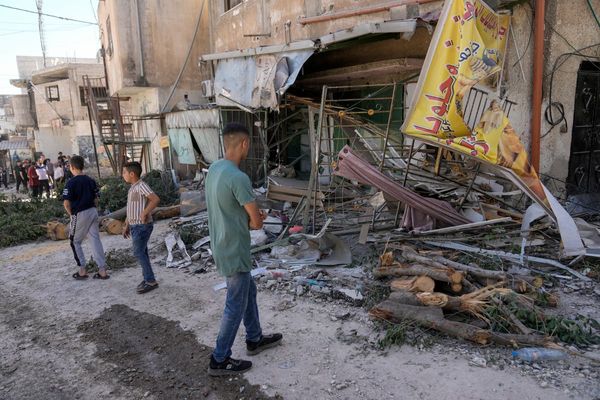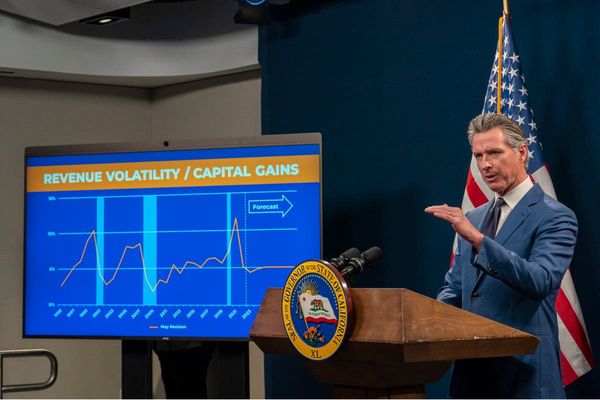CHICAGO -- Jayline Perez, 21, graduated three semesters early from Roosevelt University in December 2021. With her parents and grandparents only having gone through school as far as elementary school, she credits Rush Education and Career Hub, or REACH, with changing her future.
“I grew up kind of not really knowing that college was an option for me,” she said. “REACH was one of the only outlets I ever had besides my high school encouraging me to go to college.”
Now Perez is studying for the Medical College Admission Test and looking forward to a career in medicine. Neuroscience interests her, but she may change her mind. Perez is also working with her mentor, Dr. Susan Lopez, director of diversity, equity and inclusion for graduate medical education at Rush University Medical Center, helping with COVID-19 health disparities research (working with the data of COVID-19 patients to look at differences in outcomes by the need for Spanish interpretation) and organizing pre-med “boot camps” for Black and Latinx teens.
Perez’s path to health care started when she joined REACH during her junior year in high school as part of After School Matters. The Belmont Cragin resident was interested in health care to some extent, but her summer internship at Rush University Medical Center with REACH’s MedSTEM Explorers program, a session with hands-on learning and skill development, made it stick. She recalls the orientation to the program giving her a sense of belonging.
“I saw that it was mostly women that were running the program … it’s kind of like, ‘Wow, there’s actually women that look like me out here,’” she remembers. “They were able to understand my struggles and I was surrounded by students that have a very similar story like mine. I always felt like people probably wouldn’t understand me because of my cultural background. I grew up with here in the Northwest Side, and all the barriers I had to continue to jump trying to avoid the traps of poverty. When they brought in other students like that, I was definitely able to resonate with it because I realized that I wasn’t the only one.”
She started with REACH in 2018, but her emotions from finding the truth behind the words “Representation matters” are still evident years later.
“They were not just giving us clinical experience like working with patients or having that communication with other health care providers, that kind of resource,” Perez said. “They were also developing a sense of believing in ourselves. When you have interns helping a patient, even if it’s serving water, or bringing some washcloths, you’re doing something for them, and for me, it was ‘I can actually help, I can actually go further from here.’”
In 2021, of the students served by REACH, 75% were female, 90% were West Side residents, 88% were Black or Latinx, and 65% first-generation college attendees. The program provided more than 180 high school and college interns with more than 25,000 paid, work-based learning hours and helped 50% of MedSTEM Pathways interns and 100% of MedSTEM Explorers to earn one or more industry-recognized credentials (i.e., CPR, first aid/basic lifesaving, phlebotomy technician or ECG technician). The Rush Education and Career Hub is a pipeline for students from prekindergarten through college to participate in science and math enrichment opportunities; its mission is to increase diversity in STEM and health care professions.
“I don’t want our students to just be patient transport. Yes, you can start there, but I want you to be able to do more if you want to,” said REACH Executive Director Rukiya Curvey Johnson. “They should be the physicians, they should be the research scientists, they should be some of the anesthesiologists, and so what can we do to directly get them on that path, and being able to access higher wages and therefore more benefits and a happier or a better quality of life?”
Curvey Johnson has been with REACH for five years and is the former executive director of STEM and strategic initiatives at Chicago Public Schools. Having been on the educational side for years, she said she saw REACH as an opportunity to be able to inform the pipeline on the industry side. With 10 partnering schools on the West Side and looking for more, Curvey Johnson wants every REACH student to feel what Perez feels about their future — a sense of ownership, confidence, self-agency and a chance to give back.
“That’s something we try to cultivate in all of our students,” she said. “Building a sense of self-efficacy about what they can do to actively create change, to be a community problem-solver, to also be able to address some of the disparities they see but also just bring others along. The fact that Jayline stepped up with her sister and co-leading our med school boot camp program, it’s just phenomenal. It’s that relationship building and having this sort of peer support to engage with to help cheer you on, which is so incredibly important.”
They don’t need to know what health care path they want to be in, they just have to show an interest. It’s that interest that REACH wants to spark. REACH’s career pathway tool lets youth explore the field led by their likes.
“You can actually click ‘I like helping people,’ and it’ll take you to a couple of careers that align with that and you’ll get a chance to engage and look at not only our programs, (but) other programs around the city as well, and activities that they can do that can help further and deepen that interest,” Curvey Johnson said.
As for Perez, she’s just getting started. Her work of giving back will continue, “God willing, as a medical student in about a year,” she said. She’s looking to be a resource for others who look like her in that capacity as well.
“A lot of these health care disparities, one of the factors is that there’s not many professionals in medicine that come from underrepresented communities,” Perez said. “They’re (REACH) building up those professionals. I know that they’re very open, not just to health care, but also IT and other programs. Hopefully one day that evolves into helping another person, either as a patient or not a patient, eventually bridging that gap.”
____







